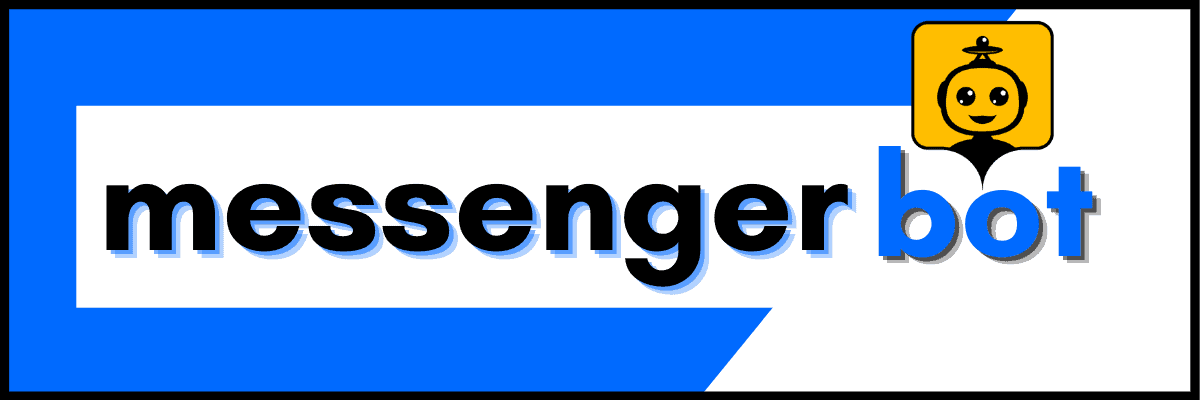In today’s digital age, conversational AI has emerged as a game-changer, revolutionizing how businesses interact with customers. As the demand for seamless, personalized experiences skyrockets, top conversational AI companies are leading the charge with cutting-edge chatbots and virtual assistants. From global tech giants to innovative startups, these industry leaders are redefining customer engagement, leveraging advanced natural language processing and machine learning algorithms to deliver intelligent, human-like interactions at scale. Whether you’re seeking the best AI chatbot for customer support, sales, or information retrieval, this comprehensive guide will unveil the top conversational AI platforms, their unique strengths, and how they’re shaping the future of conversational interfaces.
1. Who is the global leader in conversational AI?
As the demand for seamless and intuitive digital interactions continues to surge, conversational AI has emerged as a game-changer, revolutionizing the way businesses engage with their customers. In this highly competitive landscape, several industry giants and innovative startups have established themselves as conversational AI companies at the forefront of this transformative technology.
1.1 Conversational AI Companies List
The conversational AI market is highly dynamic, with a diverse array of companies offering cutting-edge solutions. Here are some of the prominent players in the industry:
- Google: With its Dialogflow platform, Google has established itself as a leader in conversational AI, leveraging its expertise in natural language processing and machine learning.
- Amazon: Amazon’s Lex service, integrated with the powerful AWS ecosystem, provides businesses with a robust conversational AI solution.
- IBM: IBM Watson Assistant, built on the company’s renowned AI capabilities, offers advanced features like sentiment analysis and seamless integration across various channels.
- Microsoft: The Microsoft Bot Framework empowers developers to create intelligent chatbots and virtual assistants, supporting multiple programming languages and channels.
- Pandorabots: This platform stands out for its intuitive interface, support for over 100 languages, and robust analytics and customization options.
- Rasa: An open-source conversational AI platform known for its advanced NLP, dialogue management capabilities, and support for custom actions.
- Kore.ai: Acclaimed for its advanced NLP, multi-channel support, and powerful conversational AI building capabilities.
1.2 Conversational AI Companies in USA
While conversational AI has gained global traction, the United States remains a hub for innovation in this field. Some of the leading conversational AI companies based in the USA include:
- Anthropic: Known for developing advanced language models like Claude, this San Francisco-based startup is at the forefront of conversational AI research.
- Replika: Headquartered in San Francisco, Replika offers a highly engaging conversational AI companion app.
- Olly: Based in Boston, Olly specializes in developing AI-powered virtual assistants for healthcare and other industries.
- Botkit: This Seattle-based company provides a powerful conversational AI platform for building chatbots and virtual assistants.
- Sensay: With offices in San Francisco and New York, Sensay offers an advanced conversational AI platform for enterprises.
As I delve into this fascinating realm of conversational AI, it’s clear that the industry is brimming with innovation, with companies pushing the boundaries of what’s possible in natural language interactions. From tech giants to nimble startups, the race is on to develop the most sophisticated and user-friendly conversational AI solutions.

What are Gartner’s top conversational AI platforms?
Gartner, the renowned research and advisory firm, has extensively evaluated the conversational AI landscape, providing valuable insights and recommendations for enterprises seeking to leverage this transformative technology. According to Gartner’s analysis, some of the top conversational AI platforms include:
2.1 Conversational ai companies gartner
Google has consistently ranked among the leaders in Gartner’s Magic Quadrant for Conversational AI Platforms. With its advanced natural language processing capabilities and the power of the Google Assistant, the tech giant offers robust solutions for businesses seeking to integrate conversational AI into their customer experience strategies.
Microsoft, another industry heavyweight, has earned recognition from Gartner for its conversational AI offerings, including the Microsoft Bot Framework and the integration of AI capabilities into its productivity suite. Microsoft’s solutions enable businesses to create intelligent chatbots and virtual assistants tailored to their specific needs.
Amazon has also emerged as a leader in conversational AI, with its Alexa platform and the Amazon Lex service. Gartner has highlighted Amazon’s strengths in enabling businesses to build and deploy conversational interfaces across various channels, leveraging the company’s extensive experience in natural language processing and machine learning.
2.2 Conversational ai gartner magic quadrant
In the Gartner Magic Quadrant for Conversational AI Platforms, companies like IBM and Nuance Communications have also been recognized for their robust conversational AI offerings. IBM’s Watson Assistant and Nuance’s Conversational AI solutions have gained traction for their advanced natural language processing capabilities and industry-specific applications.
It’s worth noting that while these tech giants have established themselves as leaders, the conversational AI landscape is rapidly evolving, with innovative startups and emerging players continuously pushing the boundaries of what’s possible. Brain Pod AI, for instance, has garnered attention for its cutting-edge generative AI solutions, including a powerful AI chat assistant, image generator, and AI writer, offering businesses a comprehensive suite of conversational AI tools.
3. Which is the best company for AI?
When it comes to AI, there is no one-size-fits-all solution, as different companies excel in different areas. However, some of the leading AI companies that are making significant strides in conversational AI and AI chatbots are:
- Google: With its powerful Dialogflow platform, Google is a leader in conversational AI for customer service.
- Amazon: Amazon Lex is a widely adopted conversational AI platform for building chatbots and virtual assistants.
- IBM: With its Watson Assistant, IBM is a pioneer in AI-powered customer service solutions.
- Microsoft: The Microsoft Bot Framework is a robust platform for building conversational AI solutions across various channels.
- Nuance: Known for its Nuance Mix platform, Nuance is a leader in AI-powered customer service solutions.
While these companies are at the forefront of conversational AI, it’s essential to evaluate your specific business needs and requirements before selecting the best AI chatbot solution for your organization. Factors such as integration capabilities, natural language processing (NLP) accuracy, scalability, and pricing should be considered.
3.1 Enterprise conversational ai platforms
Enterprise conversational AI platforms are designed to meet the unique needs of large organizations, offering advanced features and capabilities for building and deploying AI-powered chatbots and virtual assistants. Some of the leading enterprise conversational AI platforms include:
- Google Cloud Dialogflow: A comprehensive platform for building conversational interfaces across various channels, including web, mobile, and IoT devices.
- Amazon Lex: Part of the AWS suite, Amazon Lex is a powerful platform for building conversational interfaces for various use cases.
- IBM Watson Assistant: Leveraging IBM’s advanced NLP and machine learning capabilities, Watson Assistant enables enterprises to build intelligent chatbots and virtual agents.
- Microsoft Bot Framework: Microsoft’s Bot Framework provides a comprehensive set of tools and services for building conversational AI solutions.
- Nuance Mix: Nuance Mix is a powerful platform for building multilingual chatbots and virtual assistants for customer service and other enterprise applications.
These platforms offer robust features such as multilingual support, advanced analytics, and seamless integration with existing systems, making them well-suited for large-scale enterprise deployments.
3.2 Constraints: conversational AI companies, AI chatbots
While conversational AI companies and AI chatbots offer numerous benefits, there are also some constraints and challenges to consider:
- Data Quality: The performance of conversational AI systems heavily relies on the quality and quantity of training data. Ensuring high-quality, diverse, and unbiased data can be a challenge.
- Context Understanding: While AI chatbots have made significant strides, understanding complex context and nuances in human language can still be challenging, leading to potential misunderstandings or inappropriate responses.
- Ethical Considerations: As AI chatbots become more advanced, ethical concerns around privacy, data usage, and potential biases need to be addressed.
- Integration Complexities: Integrating conversational AI systems with existing systems and workflows can be complex, requiring careful planning and implementation.
- User Expectations: Managing user expectations and ensuring a seamless experience can be challenging, as users may have varying levels of understanding and expectations when interacting with AI chatbots.
To address these constraints, conversational AI companies are continuously investing in research and development, improving their natural language processing capabilities, and exploring new techniques such as Brain Pod AI’s multilingual AI chat assistant to enhance context understanding and provide more natural and engaging conversational experiences.
4. Is Bard better than ChatGPT?
When it comes to conversational AI, the competition between tech giants like Google and OpenAI is fierce. Google’s Bard and OpenAI’s ChatGPT are two of the most prominent conversational AI models, each with its own unique strengths and capabilities.
While both Bard and ChatGPT are highly advanced language models, there are some key differences between them. ChatGPT is known for its remarkable natural language generation abilities, allowing it to engage in coherent and contextual conversations across a wide range of topics. It can provide detailed explanations, answer follow-up questions, and even assist with tasks like coding and creative writing.
On the other hand, Bard is designed to be a more focused conversational AI assistant, leveraging Google’s vast knowledge base and search capabilities. While it may not be as open-ended as ChatGPT, Bard excels at providing concise and accurate information based on Google’s search results. It can quickly retrieve and synthesize relevant information, making it a powerful tool for research, fact-checking, and multilingual conversations.
Both AI models have their strengths and weaknesses, and the “better” option may depend on the specific use case and user preferences. ChatGPT is more versatile and can engage in more open-ended conversations, while Bard is more focused on providing accurate, up-to-date information from Google’s search engine.
It’s worth noting that the conversational AI landscape is rapidly evolving, with companies like Anthropic and Cohere also making significant strides in this field. Ultimately, the “best” conversational AI may come down to personal preference and the specific requirements of the task at hand.
4.1 Chatbots online, best AI chatbot
In the realm of online chatbots, there are numerous options available, each with its own unique features and capabilities. When it comes to determining the “best” AI chatbot, it ultimately depends on the specific needs and requirements of the user or organization.
Some of the top AI chatbots currently available online include:
- Anthropic’s Claude: Anthropic’s conversational AI model, Claude, has gained significant attention for its advanced language understanding and generation capabilities. It can engage in natural conversations, provide detailed explanations, and even assist with coding tasks.
- Anghami’s Engie: Engie is a multilingual AI assistant developed by the music streaming platform Anghami. It can converse in Arabic, English, and French, making it a valuable tool for users in the Middle East and North Africa region.
- Cohere’s AI: Cohere is a leading provider of AI language models, offering powerful conversational AI capabilities. Their models can be customized and fine-tuned for specific use cases, making them a versatile choice for businesses.
- Replika: Replika is a popular AI companion app that allows users to engage in open-ended conversations on various topics. It can provide emotional support, advice, and even creative writing assistance.
- Messenger Bot: Our own conversational AI platform, Messenger Bot, is designed to enhance digital communication by utilizing artificial intelligence to manage and optimize interactions across various channels. With features like automated responses, workflow automation, lead generation, and multilingual support, we strive to provide a comprehensive solution for businesses seeking to leverage the power of conversational AI.
It’s important to note that the “best” AI chatbot can vary based on factors such as the intended use case, the level of customization required, the desired language support, and the overall user experience. Many of these chatbots offer free trials or demos, allowing users to explore their capabilities and determine the best fit for their needs.
4.2 Best chatbots, chatbot company
In the rapidly evolving landscape of conversational AI, several companies have emerged as leaders in developing and deploying innovative chatbot solutions. Here are some of the top chatbot companies to consider:
- IBM Watson Assistant: IBM’s Watson Assistant is a powerful conversational AI platform that leverages natural language processing and machine learning to create intelligent chatbots. It can be customized for various industries and use cases, and it supports multiple languages.
- Microsoft Teams: While not primarily a chatbot company, Microsoft Teams offers robust chatbot integration capabilities. Developers can build custom chatbots using the Microsoft Bot Framework and seamlessly integrate them into the Teams platform for enhanced collaboration and productivity.
- Google Dialogflow: Dialogflow is Google’s conversational AI platform that allows developers to build and deploy chatbots across various channels, including websites, mobile apps, and messaging platforms. It offers advanced natural language understanding and machine learning capabilities.
- Amazon Lex: Amazon Lex is a service provided by AWS (Amazon Web Services) that enables developers to build conversational interfaces using advanced natural language processing and automatic speech recognition technologies.
- Pandorabots: Pandorabots is a leading chatbot development platform that offers a wide range of tools and resources for creating and deploying chatbots across various channels, including websites, mobile apps, and messaging platforms.
- Brain Pod AI: Brain Pod AI is an innovative company that offers a suite of generative AI solutions, including a powerful conversational AI platform for building and deploying chatbots. Their focus on cutting-edge AI technologies and customizable solutions makes them a compelling choice for businesses seeking advanced chatbot capabilities.
When choosing a chatbot company, it’s crucial to consider factors such as the platform’s scalability, integration capabilities, natural language processing abilities, and overall ease of use. Many of these companies offer free trials or demo versions, allowing businesses to evaluate their offerings and make an informed decision based on their specific needs and requirements.

5. What is better than ChatGPT?
As the conversational AI landscape continues to evolve rapidly, the quest for the ultimate AI assistant has become increasingly competitive. While ChatGPT has garnered significant attention and acclaim, it’s important to recognize that it is not the only contender in the field. Several other conversational AI companies have emerged, offering advanced solutions that push the boundaries of what’s possible.
5.1 Chat bot companies, conversational AI platforms
One notable player in the conversational AI space is Anthropic, the company behind the highly capable Claude AI. Claude has garnered praise for its impressive language understanding, reasoning abilities, and capacity to engage in substantive conversations across a wide range of topics. Additionally, Brain Pod AI has emerged as a formidable contender, offering a suite of generative AI tools, including a multilingual AI chat assistant capable of conversing fluently in over 100 languages.
Another conversational AI company that has captured the attention of industry experts is Cohere. Their cutting-edge language models, such as the Cohere Chat, demonstrate exceptional performance in tasks like text generation, summarization, and question answering. Alethea AI is also making waves with its innovative approach to conversational AI, emphasizing ethical and transparent AI development.
It’s worth noting that these companies are not only competing with OpenAI’s ChatGPT but also with tech giants like Google, Microsoft, and Amazon, who are actively developing their own conversational AI solutions. Comparing Bard and ChatGPT is a complex task as they are both cutting-edge language models with unique strengths and weaknesses. While Bard has the advantage of being directly integrated with Google’s vast knowledge base, ensuring access to the latest information, ChatGPT excels in generating coherent and contextually relevant responses. Ultimately, the choice depends on the specific use case. For factual queries and up-to-date information, Bard may be preferable, while ChatGPT shines in tasks requiring creative writing, text summarization, and conversational abilities. It’s important to note that both models are rapidly evolving, and their capabilities are likely to change over time. Additionally, factors such as data privacy, ethical considerations, and cost should be taken into account when selecting the appropriate AI assistant for your needs.
5.2 Conversational artificial intelligence platform, conversational AI company
At Messenger Bot, we understand the importance of staying at the forefront of conversational AI innovation. That’s why we continuously explore and evaluate the latest advancements in the field, seeking to integrate the most cutting-edge technologies into our platform. Our goal is to provide our users with the most advanced and effective conversational AI solutions, ensuring they can engage with their customers in meaningful and impactful ways.
As the conversational AI landscape continues to evolve, we remain committed to empowering businesses with AI-driven chatbots that can seamlessly converse with customers across various channels, providing personalized and efficient support. We closely monitor the latest developments from industry leaders like Anthropic, Brain Pod AI, Cohere, and Alethea AI, while also keeping a watchful eye on the initiatives of tech giants like Google, Microsoft, and Amazon.
By staying abreast of these advancements, we can continuously refine and enhance our conversational AI platform, ensuring that our users have access to the latest and most powerful technologies. Whether it’s leveraging cutting-edge language models, integrating multilingual capabilities, or incorporating advanced reasoning and decision-making abilities, we are committed to delivering the best conversational AI experience possible.
At the core of our approach is a deep understanding that conversational AI is not a one-size-fits-all solution. Each business has unique needs and requirements, and we strive to provide tailored solutions that address those specific challenges. By closely collaborating with our users and staying attuned to the latest industry developments, we can continue to push the boundaries of what’s possible in the realm of conversational AI.
6. Top conversational AI companies
The conversational AI landscape is rapidly evolving, with numerous companies at the forefront of this transformative technology. Here are some of the top conversational AI companies shaping the future of human-machine interactions:
6.1 AI chatbot company, conversational platform
Anthropic is a leading AI research company renowned for its groundbreaking work in developing safe and ethical artificial intelligence systems. Their flagship product, Claude, is a cutting-edge conversational AI assistant that has garnered significant attention for its exceptional language understanding, reasoning capabilities, and commitment to transparency.
Another prominent player in the conversational AI space is Google. Through their AI division, Google has developed several powerful language models, including PaLM, which excels in tasks such as question answering, text summarization, and reasoning. Google’s conversational AI offerings are known for their robustness and scalability, making them well-suited for enterprise applications.
Microsoft’s AI division has also made significant strides in conversational AI, with their language models being integrated into products like Microsoft 365 Copilot. This AI-powered assistant aims to revolutionize productivity by assisting users with tasks like writing, data analysis, and code generation.
It’s worth mentioning that while ChatGPT, developed by OpenAI, has gained immense popularity, the company is expected to release GPT-4, which promises even more advanced capabilities in areas like reasoning, task execution, and specialized knowledge domains.
6.2 Conversational platforms, AI chatbot companies
While the aforementioned companies are at the forefront of conversational AI research and development, there are several other notable players in the industry:
- IBM Watson Assistant is a powerful conversational AI platform that leverages IBM’s expertise in natural language processing and machine learning.
- Amazon Lex is a fully managed service from Amazon Web Services (AWS) that enables developers to build conversational interfaces into applications using voice and text.
- Salesforce Einstein Conversation AI is a comprehensive platform designed to help businesses build and deploy AI-powered chatbots and virtual assistants.
- Twilio Autopilot is a conversational AI platform that allows businesses to create intelligent chatbots and virtual agents for customer engagement across various channels.
- Brain Pod AI is an innovative AI company offering a suite of generative AI tools, including a powerful conversational AI assistant, an AI writer, and an AI image generator, all designed to streamline creative workflows.
These companies, along with many others, are driving innovation in the conversational AI space, providing businesses with powerful tools to enhance customer engagement, streamline operations, and unlock new opportunities through intelligent human-machine interactions.
6. Top conversational AI companies
The conversational AI landscape is rapidly evolving, with numerous companies striving to deliver cutting-edge solutions. Here are some of the top conversational AI companies leading the charge:
6.1 AI chatbot company, conversational platform
Anthropic is a prominent AI chatbot company that has gained significant recognition for its advanced conversational platform. Their flagship product, Claude, is a powerful AI assistant capable of engaging in natural language interactions across various domains. Anthropic’s focus on developing safe and ethical AI systems has earned them a reputation for innovation and responsibility within the industry.
Another notable player is Google Bard, Google’s conversational AI offering. Bard leverages Google’s extensive knowledge base and cutting-edge language models to provide informative and engaging responses. While still in its early stages, Bard has the potential to revolutionize how we interact with information and digital assistants.
Anthropic and Google Bard are at the forefront of the conversational AI revolution, pushing the boundaries of what’s possible with natural language processing and human-computer interaction.
6.2 Conversational platforms, AI chatbot companies
Beyond the industry giants, several innovative startups and established players are making waves in the conversational AI space. Replika, for instance, offers a unique conversational platform that aims to create genuine emotional connections with users through its AI-powered chatbot.
Pandorabots is another prominent AI chatbot company known for its advanced conversational platform and customizable chatbot solutions tailored for various industries.
It’s also worth mentioning Brain Pod AI, an innovative conversational AI platform that offers a suite of generative AI tools, including a multilingual AI chat assistant, AI image generator, and AI writer. Their focus on cutting-edge language models and multimodal AI capabilities positions them as a rising star in the conversational AI landscape.
These companies, along with many others, are continuously pushing the boundaries of what’s possible with conversational AI, offering solutions that enhance customer experiences, streamline business processes, and unlock new realms of human-computer interaction.




